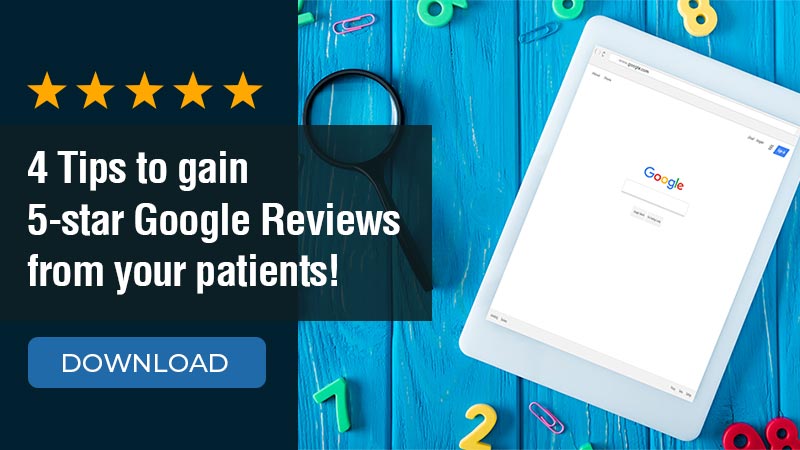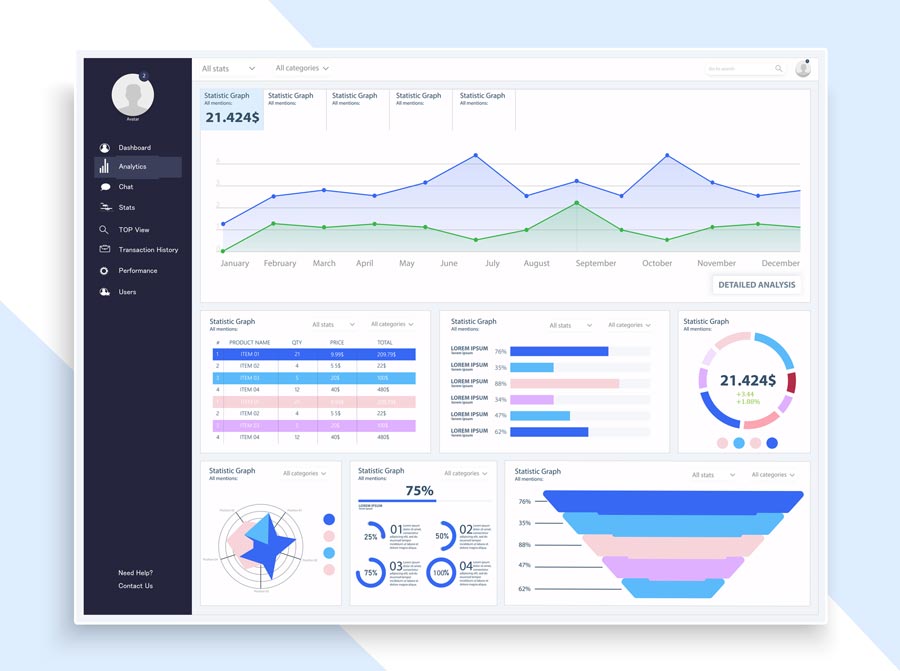Master Search Engine Optimization on Google, and there is no limit to the quality, new patients that you can attract to your practice! Why does Google matter so much? Consider the following:
- More than 90% of consumers use Google to search for local services providers.
- Google controls upwards of 90% of the SEO market.
- More than 6.6 billion Google searches are conducted every day.
Google is such a household name that it’s become a verb (no more arguments over obscure pop culture references or historical trivia – just Google it for the answer!)

Some of the world’s smartest people are constantly working on different Google ranking algorithms for this trillion-dollar-plus valued company. Even Google’s top execs wouldn’t be able to tell you exactly how such algorithms work at any given time.
So, with this much power in a name and platform, it stands to reason that you can’t have a thriving, less insurance-dependent practice without SEO via Google as the ripe source for new patients. And don’t let the lack of a “silver bullet” or the seeming complexity of ever-changing algorithms scare you. My practice, Life Smiles, was once ranked on Page No. 12 of Google. Today, we are consistently ranked on Page No. 1. You can have a Google breakthrough, too, and do so without breaking the bank!
#1 – Original content is king.
Nothing drops a search ranking quite like duplicate content. Google identifies copied and pasted content in no time. It’s a “must” that your site be full of quality insight that is yours and yours alone.
#2 – Let patients do the talking!
Your patients are “brand ambassadors.” Reviews are unsurpassed in terms of their capacity to inspire trust among prospects or newbies to your practice. Google “judges” reviews in three different ways:
- Volume or number;
- “velocity,” or consistency of reviews submitted;
- and “diversity,” or reviews that are not limited to a single source, format, or platform.
#3 – Get “NAP” right, all the time.
“NAP” stands for a critically-important basic for your practice: Name, Address, Phone.
Now, it may not seem like a big deal if one listing you abbreviate your street name as “Blvd.” and on another listing you write out “Boulevard.” But Google actually sees that seemingly small difference as a big distinction. It views you not a single practice but as multiple practices. Maintain consistency in the spelling of your name, address, and phone in all instances.
#4 – Shine a light on your Lighthouse score.
You can’t improve upon what you can’t measure. So, if you don’t know what Google Lighthouse is, access your monthly analytics report. There, you’ll find a number, which is your Lighthouse “score.” This score accounts for several technical accessibility- and performance-related metrics, such as, how long it takes for a browser on a device to convert media into visual page content.
Generally, you’ll want to have a score of at least 90% to be in the “green” or “good” category. Scores of at least 50% are coded as “orange” for “needs improvement,” while “red” signifies a “poor” score (49% or lower).

#5 – Take a bite out of Google “EAT”
Here is yet another acronym you need to know. “EAT” stands for “Expertise,” “Authority,” and “Trust.”
Content must demonstrate that you are an expert and authority in a given area, and it conveys and establishes trust. To better understand the type of information visitors to your site should consume, Google provided an update that demonstrates exactly what info should never appear on your site.
The “Your Money or Your Life” update encourages service providers to consider: “Is the type of information I am presenting inaccurate or deceptive in a way where it would damage a reader’s happiness, health, safety, or financial stability?” The stakes are great as a dentist or health care provider. If there is even a question as to how your information may be perceived or interpreted, rework it or leave it out!
#6 – Mind the depth of your content.
To establish yourself as an authority, it’s important to have backlinks. These third-party sites link back to you as a source of expertise in a specific technology, treatment, or product. So, when people search for certain services or attributes, they’ll find you through quality backlinks.

#7 – To “mind” something, you must “measure” it.
Closely related to #4 (Lighthouse scores), it’s important to know your data. Your website generates loads of information, which may be tracked, analyzed, and improved upon. Google Analytics collects and reports data like the number of visits to your website, the number of unique visitors, and the length of time each visitor sticks around; for instance, the longer they stay, the better. If an average visit is a mere five seconds, there is room for improvement. Because, even in the Google era, five seconds isn’t sufficient to influence anyone’s decision-making.

Elevate your presence on Google SEO to get more quality patients through the door. And, if you need a little help, surround yourself with the experts in dental marketing. We at Life Smiles Dental Practice partner with Ekwa Marketing, a professional digital marketing firm that has helped hundreds of dentists just like you reach new heights of success.
Schedule a free marketing strategy and consult with them. Happy SEO’ing!
Here is the link to the full podcast episode on How to improve your Search Engine Optimization on Google. Listen to it now!









